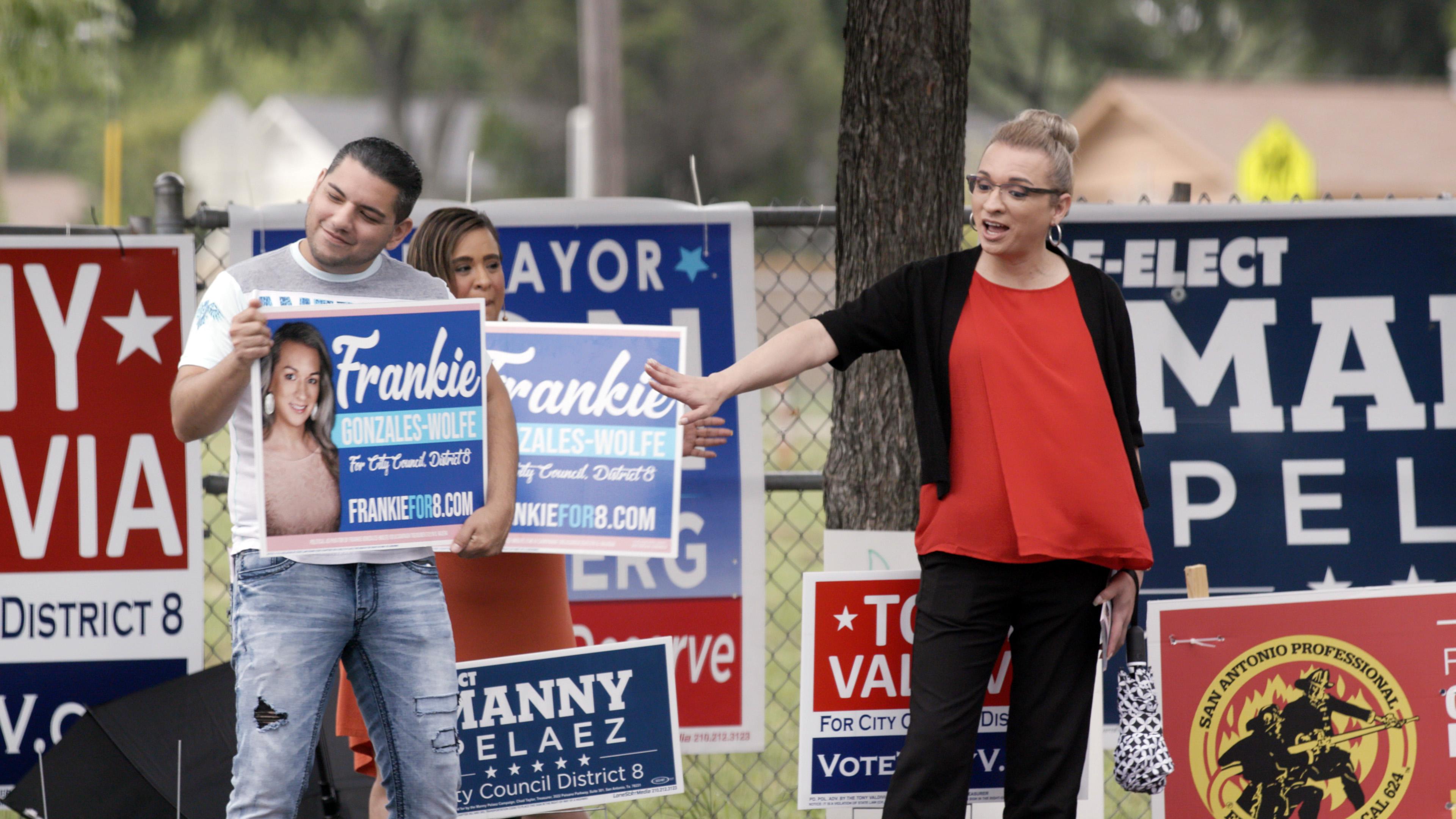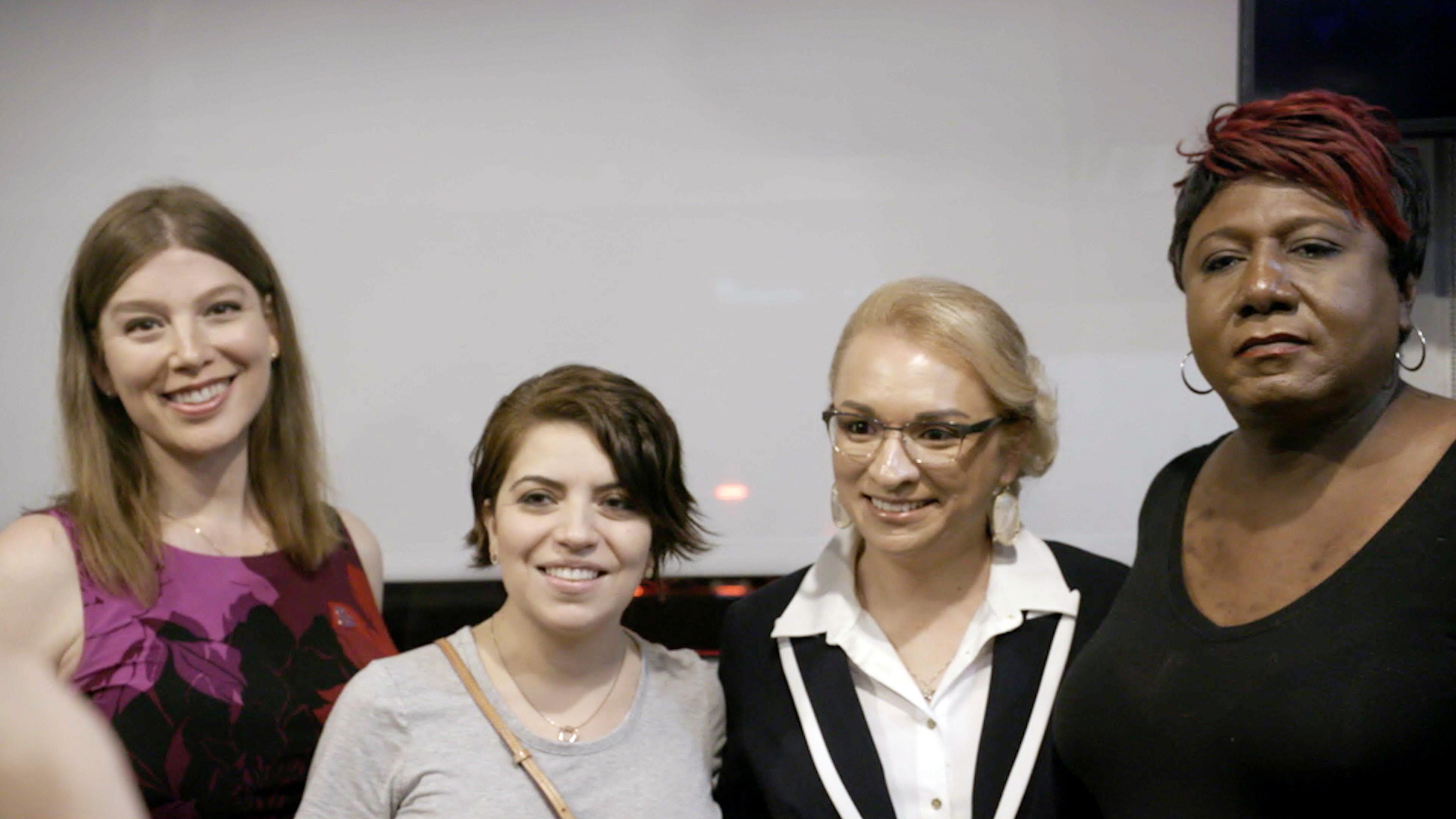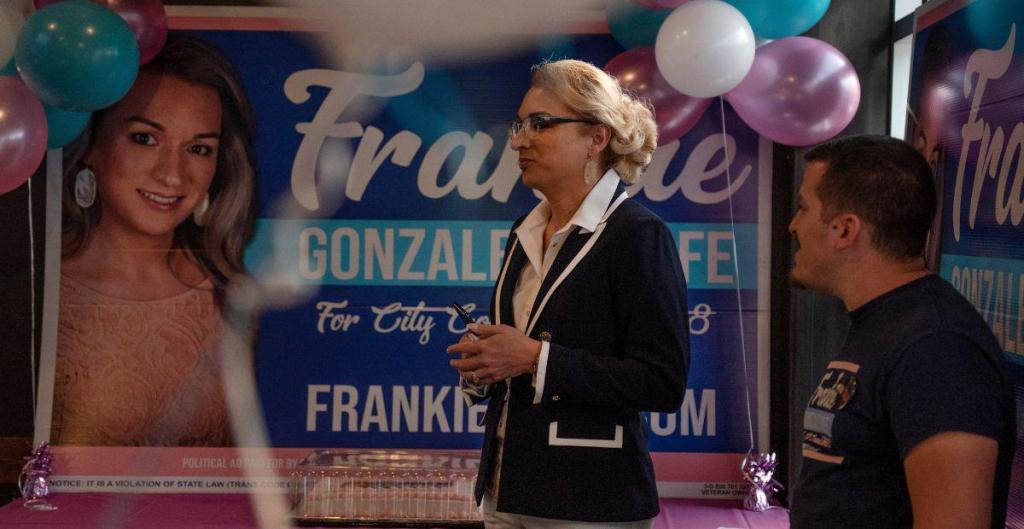When we think about elections, so many of us focus on presidential elections and forget about congressional, statewide or even smaller, local elections. The documentary film, “A Run for More,” focuses on Frankie Gonzales-Wolfe as she runs for one of those local positions—city council member in San Antonio, Texas. Focusing on Gonzales-Wolfe as the first openly transgender woman to run for such office, the film shows how the campaign gave Gonzales-Wolfe a deeper sense of self. I was lucky enough to chat with her and the film’s director, Ray Whitehouse, about their friendship, the campaign, making the film and Frankie’s future political plans.
The pair met in 2016 when Whitehouse was working on a project about political campaign volunteers. At the time, Gonzales-Wolfe was working as a volunteer on Hillary Clinton’s presidential campaign. She has worked on dozens of campaigns over the years—her first was Bill Clinton’s re-election campaign in 1996 while still in high school.
“The film [“A Run for More”] really came from the relationship we built in 2016,” Whitehouse explained. “I came to Frankie with this idea about exploring ideas around who was qualified to run for office, who is not qualified and what are the lived experiences that fit into those categories.”
A Run for More – Trailer
A Run for More – Trailer from Ray Whitehouse on Vimeo.
In 2018, after growing tired of politicians using diversity and inclusion as a running platform but not an actual practice, Gonzales-Wolfe decided that she was going to run for city council. Of course, Whitehouse suggested filming the whole experience and turning it into a feature-length documentary. For Gonzales-Wolfe, allowing the process to be filmed would allow it to stand as a living document and testament to what it’s like to run for political office when you’re trans, especially in a place that is traditionally conservative, like Texas.
“The kind of conversation I wanted to generate was this kind of conversation around the two worlds that Frankie had to navigate: one world was sort of like ‘hey I’m just Frankie and I’m running for office,’ she didn’t necessarily get taken very seriously. But then when she tried to foreground her identity as a trans woman trying to do this groundbreaking thing, then you get into the flipside. By highlighting her visibility, the unfortunate reality is that’s what leads to attacks,” Whitehouse said.
The National League of Cities describes city council members as “legislators of a municipality who are democratically elected to decide which services will be provided and how to pay for them, among many other tasks.” Because of the nature of the work, the position is elected, but is nonpartisan, meaning you don’t have to be affiliated with a particular political party to run. Council members serve their most local constituents on local matters, which means they’re serving a diverse group of people with equally diverse needs and interests.
A native Texan, you can see that Gonzales-Wolfe really cares for the people where she’s from and believes that she can have a hand in creating a better place for her neighbors and herself. Much of her platform revolves around local changes she can make, like protecting small businesses and giving them space in the local airport. She’s also a caring and loving wife and daughter—you see a lot of her time at home with her husband Jeff. “A Run for More” gives you a look at how a regular person can make a difference. But also, it reveals that politics can teach you a lot, especially about yourself.
“For me, it wasn’t so much of a balance as it was telling Ray, ‘if we’re going to do a documentary and you’re going to be shooting about me, about my life, what it is to be a trans woman—a trans person in Texas, you have to be all in,’ which means you’re going to see me at my worst, my best, stressed, not wearing makeup. I wanted to be able to capture the true sentiment of ‘I’m not different than anyone else’ when it comes to family,’” Gonzales-Wolfe told me.
“A Run for More” is not without its heavy moments. During one scene near the middle of the film, Gonzales-Wolfe tells the story of her sexual assault in striking detail. It’s not in the film for shock value—it shows her resilience, and how it takes time to get to a point where it doesn’t define her.
“That situation didn’t define who I am as a woman, even though those men wanted to make it a point to let me know it would define me as a woman,” she shared.
In another scene, she and her volunteers are tasked with door-to-door canvassing. While a typical part of campaigning, it’s not without its own challenges. But this particular moment will highlight something many of us don’t think about. The campaign consultant she’s working with (who is a successful advisor and friend) has them working from a list of exclusively Republican and conservative constituents. It’s a nonpartisan race—Gonzales-Wolfe and her team are well aware that they have to appeal to voters on both sides of the political table.
We see her walking up to doors and knocking…most doors don’t even open. A few do and take a flier. But then there’s one house where the resident is clearly one of the angry Republican types we have seen on television. He berates Gonzales-Wolfe for only listening to CNN and other “left wing” news and not watching Fox News or listening to the other side. She calmly assures him that she is listening and will fight for everyone. When the door closes, she is clearly rattled by the interaction and makes the decision that the team will switch to phone banking the rest of the list.
Later that same day, a visibly upset Gonzales-Wolfe tells her team about a phone call she has just ended. During the call, the voter she was speaking with calls her a “f***ing tranny,” which understandably upsets and enrages her. Talking to her campaign consultant later (who is upset that the team deviated from the plan of in-person canvassing) she relays the conversations again, still very upset by the interactions.
Sending a trans person into interactions like that can have multiple outcomes. It could be the ones that Gonzales-Wolfe encountered, where people just said things that were unkind or spoke in a tone that was rattling. But things could have escalated to violence, especially during the in-person interaction. By canvassing in person, she was opening herself up to physical violence. You never know what’s in a person’s mind. There are multiple scenes in the film where we see Gonzales-Wolfe and her team repairing campaign signage around town that was torn down because she is trans.
The most positive moments in the film come from her interactions with other trans people. She touches on it in the film, but it’s clear that connecting with her transness has been challenging to her in her transition. Running for office forced her to interact with local transgender activists in her community to truly understand what trans people in Texas are fighting for. As a result, it deepened her understanding and connection to the local community and to herself.
“I’m embarrassed right now,” Gonzales-Wolfe tells her husband at home after a trans lobby day. “For the past 20 plus years, I’ve stayed away from…I’ve never been an activist. I’ve been in politics, but I’ve never been an activist within the LGBTQIA community—especially on trans issues. I can’t lie about it.”
Ultimately, Gonzales-Wolfe lost the election, coming in third. Of course the loss was disappointing, but not discouraging. Currently, she is working as the chief of staff for the county commissioner, but she’s absolutely not ruling out another run for office in the future.
“Now is not the time, I believe I will be given a sign when the time comes,” Gonzales-Wolfe said. “But yeah, I do see myself running again, but I don’t see myself running in a nonpartisan race. It’s not local government that has written laws against me or shun who I am as an individual. It has been people at the state level and I feel that is where I’ll best be able to use my skill set as a voice for the voiceless.”






























